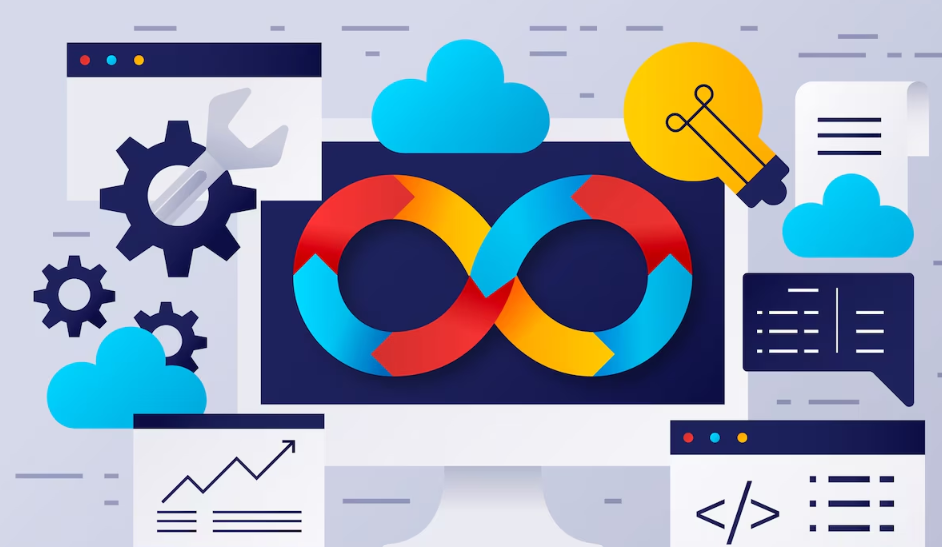Artificial Intelligence (AI) is revolutionizing industries across the globe, but its impact on the healthcare sector is truly life-changing. From faster diagnoses to personalized treatments and robotic surgeries, AI is making healthcare more efficient, accurate, accessible, and patient-centered.
In 2025, the health sector is embracing AI not just as a tool, but as a partner in delivering better outcomes for patients, doctors, hospitals, and researchers.
In this article, we’ll explore how AI is shaping modern healthcare, its key benefits, real-world examples, and the challenges ahead.
1. AI in Medical Diagnosis
One of the most significant impacts of AI is in the field of early and accurate diagnosis. AI-powered systems can analyze vast amounts of patient data, medical records, lab results, and imaging scans to detect diseases more precisely than traditional methods.
🔍 Use Cases:
-
Radiology: AI tools like Google’s DeepMind and IBM Watson can analyze X-rays, MRIs, and CT scans to detect conditions such as cancer, fractures, and neurological disorders.
-
Pathology: AI algorithms help identify abnormal cells or genetic mutations in biopsy samples.
-
Ophthalmology: AI systems detect diabetic retinopathy and glaucoma at early stages by analyzing retinal images.
✅ Benefit:
-
Faster diagnosis
-
Reduced human error
-
Early detection saves lives
2. AI-Powered Predictive Analytics
AI can predict a patient’s future health conditions based on existing data. By analyzing:
-
Genetic data
-
Lifestyle habits
-
Past medical history
AI algorithms can forecast the risk of diseases like diabetes, heart attack, or stroke even before symptoms appear.
🌟 Example:
Healthcare providers use predictive analytics to identify high-risk patients and implement preventive care, reducing emergency visits and hospitalization.
3. Virtual Health Assistants and Chatbots
AI-driven virtual assistants and chatbots are now available 24/7 to answer health-related questions, remind patients to take medications, schedule appointments, and offer mental health support.
💬 Popular Tools:
-
Ada Health: Assesses symptoms and provides advice.
-
Buoy Health: Guides users on whether to see a doctor or manage symptoms at home.
These tools lighten the load on human doctors and offer instant responses, especially useful in remote or rural areas.
4. Robotics and AI-Assisted Surgeries
Surgical robots powered by AI are transforming operating rooms. These machines assist doctors with enhanced precision, minimal invasion, and faster recovery times.
🦾 Notable Examples:
-
Da Vinci Surgical System: Allows surgeons to perform delicate procedures with greater control.
-
Hansen Medical’s Magellan Robotic System: Navigates blood vessels during complex procedures.
Advantages:
-
Smaller incisions
-
Less pain and blood loss
-
Faster recovery
-
Lower infection risk
5. Drug Discovery and Vaccine Development
Traditionally, drug discovery is time-consuming and costly. AI accelerates the process by:
-
Simulating chemical reactions
-
Analyzing biological datasets
-
Identifying potential compounds
💊 Real-World Example:
During the COVID-19 pandemic, AI helped researchers analyze proteins and shortlist vaccine candidates at record speed. In 2025, pharmaceutical companies rely heavily on AI to test new drugs faster and more safely.
6. Personalized Treatment Plans
AI enables precision medicine—customized treatment plans based on an individual’s genetics, lifestyle, and response to previous treatments.
🔬 For Example:
-
Cancer patients receive targeted therapies based on tumor type and genetic profile.
-
AI suggests the most effective medication and dosage with fewer side effects.
This ensures better outcomes and less trial-and-error in treatments.
7. Hospital Operations and Workflow Optimization
Beyond patient care, AI improves hospital efficiency through:
-
Predictive staffing: Ensures enough staff during busy periods.
-
Supply chain management: Tracks inventory and prevents shortages.
-
Bed allocation: Optimizes patient flow and minimizes wait times.
Hospitals use AI-powered dashboards for real-time decision-making, boosting both productivity and patient satisfaction.
8. AI in Mental Health
Mental health is often hard to diagnose and treat. AI tools are now being used to:
-
Detect patterns in speech and behavior
-
Monitor mood via smartphone activity
-
Provide virtual cognitive behavioral therapy (CBT)
🧠 Apps like:
-
Wysa: An AI chatbot for anxiety and depression support.
-
Woebot: Offers emotional support using psychological principles.
AI ensures non-judgmental, private support—important for people hesitant to seek therapy.
9. Remote Patient Monitoring and Telemedicine
With wearable devices and smart health monitors, AI collects real-time data on:
-
Heart rate
-
Blood pressure
-
Glucose levels
-
Oxygen saturation
AI analyzes this data and alerts caregivers or patients of abnormalities.
📱 Telemedicine:
AI helps during virtual consultations by summarizing patient history, suggesting diagnosis, and recommending treatments—making remote care smarter and safer.
10. Challenges and Ethical Considerations
Despite the benefits, there are serious concerns that need attention:
⚠️ A. Data Privacy and Security
AI systems rely on sensitive patient data. Ensuring this data is encrypted and securely stored is vital.
⚠️ B. Bias in Algorithms
If AI is trained on biased datasets, it can lead to unfair or inaccurate medical decisions, especially for minority groups.
⚠️ C. Lack of Human Touch
While AI is efficient, it lacks empathy, which is crucial in caregiving and mental health services.
⚠️ D. Regulation and Accountability
Who is responsible if an AI system makes a wrong diagnosis? Legal and regulatory frameworks must evolve alongside technology.
The Future of AI in Healthcare
In 2025 and beyond, the integration of AI in healthcare will only deepen. Here’s what the future may look like:
-
AI and blockchain for secure health records
-
Digital twins for personalized simulations of patient health
-
Voice-based diagnostics that analyze vocal biomarkers
-
AI-assisted prosthetics for improved mobility
Healthcare professionals and AI will work together, combining human compassion with machine intelligence.
Conclusion
The impact of AI in the health sector is nothing short of revolutionary. It is transforming the way diseases are diagnosed, treatments are delivered, and patients are cared for. While challenges remain, the future is promising.
AI is not replacing doctors—it is empowering them to provide better care. With continued innovation, collaboration, and ethical vigilance, AI will make healthcare more inclusive, efficient, and life-saving in the years to come.

